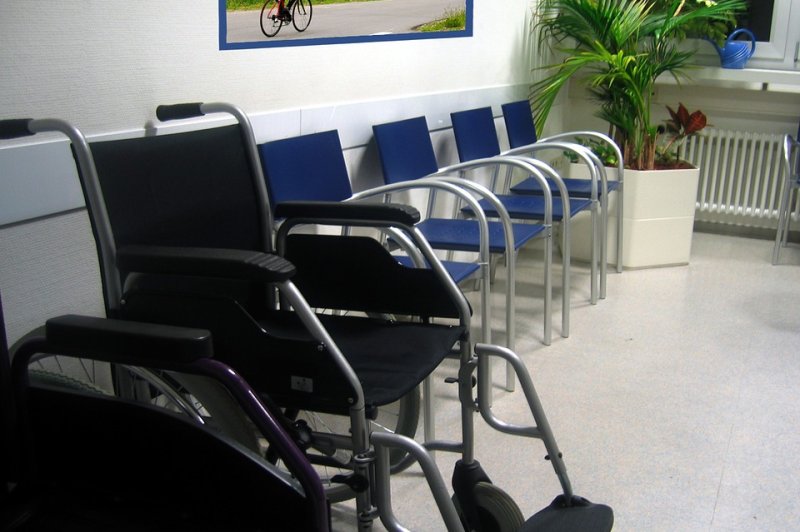Several of the nation's largest retailers are moving into the healthcare space in an effort to offer consumers easier, cheaper access to medical services. File Photo by Geralt/Pixabay
Oct. 1 (UPI) -- Within days of one another, three major retailers -- Best Buy, Walmart and Amazon -- announced new moves into the $3.5 trillion healthcare marketplace.
With the current U.S. population comprising more than 50 million Americans over 65, retailers are scrambling to get ahead of what they perceive to be a coming onslaught of health-related consumer demand.
"We're looking at a population that is aging incredibly rapidly. It's massive," Best Buy CEO Corie Barry announced last week. "People expect to age in their own homes."
With Best Buy's established role as a retailer of home electronics, Barry sees home health-related electronic devices as a key sector of expansion for the future.
The company spent more the $800 million in 2018 to acquire GreatCall, a seller of emergency-response systems for the elderly that garnered $300 million in revenue last year. Best Buy hopes to expand monitoring services to as many as 5 million seniors by 2024.
More recent acquisitions include Critical Signal Technologies -- a provider of personal emergency response systems -- and the predictive healthcare technology company BioSensics.
"This is an environment driven by constant innovation and people who need help with technology," Barry said.
As Best Buy moves further into technology-based healthcare sectors, retail giant Walmart, long a significant player in the healthcare industry due to the massive size of its pharmacy network, announced that its Sam's Club division will launch a pilot program allowing members to purchase healthcare services directly through company stores.
Sam's Club will offer four healthcare "bundles," with fees ranging from $50 to $240 per year. Services will include free prescriptions on certain generics, as well as discounts on vision care and opportunities to save on dental services through a network of Humana-affiliated providers.
Though the pilot program is confined to Sam's Club stores in only three states -- regions chosen by examining the overlap between Sam's Club locations and Humana's dental network -- the company hopes to expand nationally, depending on results.
"Access to high-quality maintenance healthcare has been shown to improve overall, long-term health," Lori Flees, Sam's Club senior vice president for health and wellness, said in a statement.
"We believe this program will help our members decrease out-of-pocket costs so they can better manage their budgets and their health," Flees said, noting that the program was designed for "members who shoulder a higher burden of healthcare costs, like small business owners or those with high-deductible plans."
As the nation's second-largest retailer, Walmart has made increasing designs on the healthcare marketplace in past months, having last year partnered with Anthem on an over-the-counter drug program for seniors, started opening Walmart Health locations and last year flirted with buying Humana.
While experts point to Thursday's announcement from Walmart, the nation's second largest retailer, as another effort that harnesses its size and reach, that announcement was overshadowed by a similar announcement -- only two days earlier -- from the largest retailer.
E-commerce titan Amazon unveiled a pilot program for its new healthcare platform, Amazon Care, which will provide both on-site and in-home health services to the company's employees and their dependents.
Though the pilot program only is available in the Seattle area -- Amazon's home base -- the company has indicated that it hopes to expand more widely.
"From Walmart to Amazon to Best Buy, and obviously CVS and Walgreens, retailers are looking at healthcare as a significant opportunity for growth," said Neil Stern of the Chicago-based retail consulting firm McMillan-Doolittle.
"As the population ages," he told the Arkansas Democrat-Gazette, "consumers look for more convenient and price-effective solutions."















